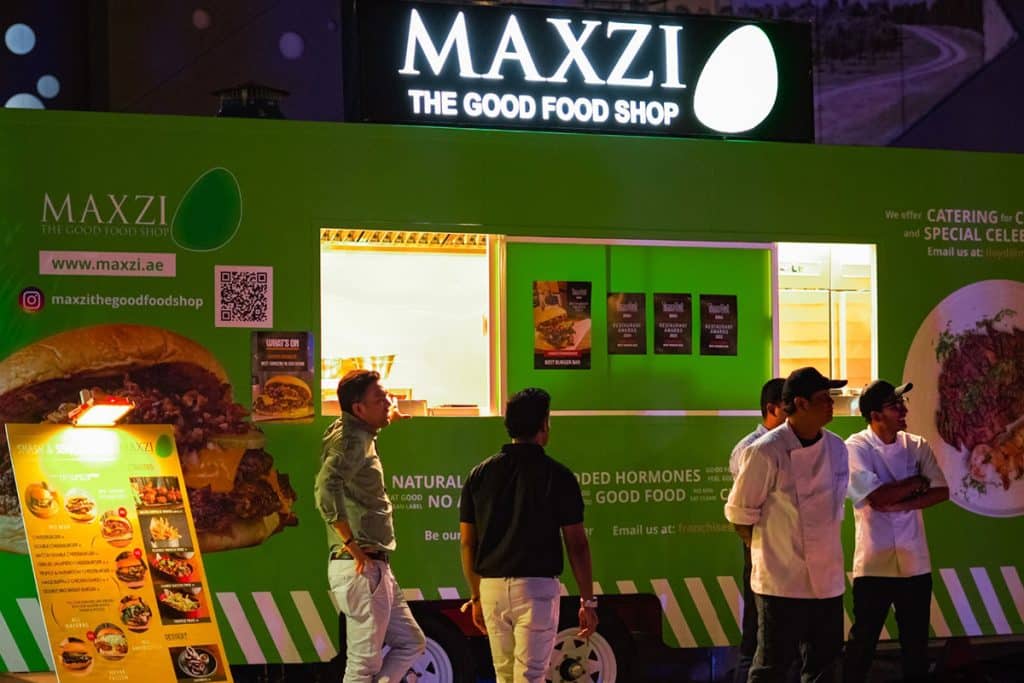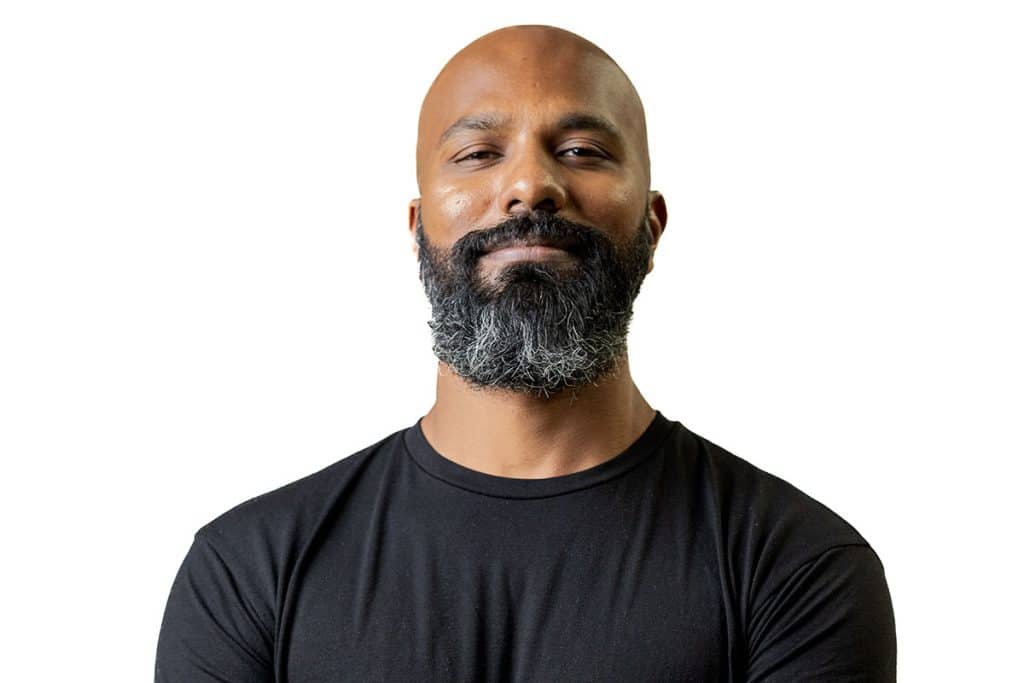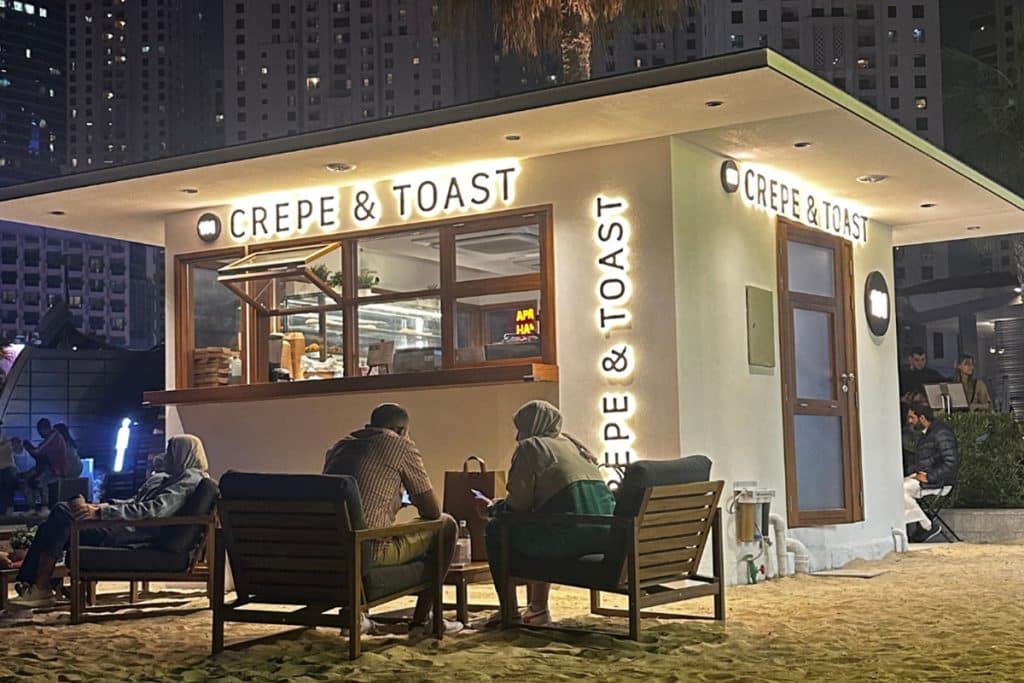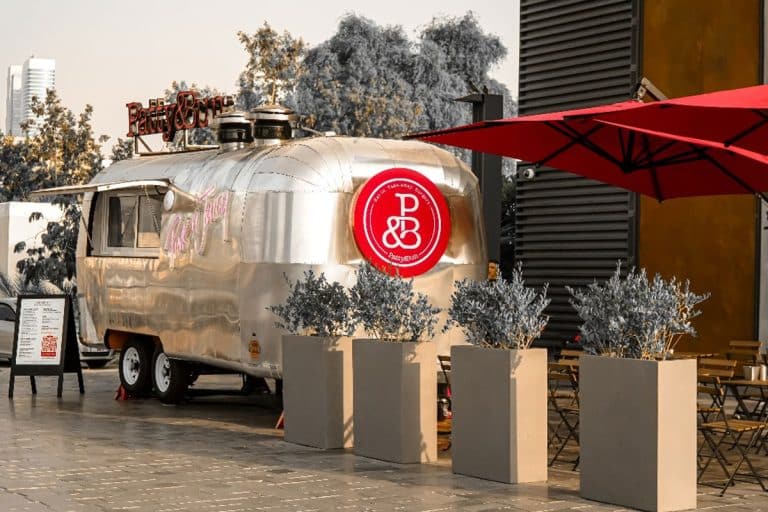The surge in tourist inflows and rising rentals are steering a new trend in the multi-billion-dollar food and beverage (f&b) sector in Dubai – to go the modular way to expand their footprints fast and cost-effective, setting up mobile eatery and coffee pop-ups and food trucks at vantage points across the city.
Leading global and local brands – from Starbucks to Costa Coffee to Peet’s to Allo Beirut, besides several large QSR brands – have already joined the bandwagon, while several more are currently in the process of making the switch, propping up huge business opportunities for modular kiosks and food truck manufacturers, industry insiders said.
Significantly, taking a cue from f&b players, retailers in several categories like clothing, perfumes, souvenirs and mobile phones are also joining the fast-rising fad, setting up more outlets outdoors.
“Major coffee chains like Costa Coffee, Starbucks, and Peet’s are investing in modular drive-through outlets, utilising light gauge steel (LGS)-built structures or retro-fitted shipping containers,” Nithin Mathew Thombil, Co-Founder of wheelsAHOY, a leading food truck manufacturer in the UAE, told Arabian Business.
“We are also seeing a growing number of players from other sectors – such as brands like Samsung to LC Waikiki – joining the modular trend,” he said.
Thombil said Dubai’s frequent high-profile events and festivals offer prime opportunities for modular and mobile setups, creating unique dining experiences that draw large crowds.
“Additionally, these units provide flexibility for seasonal menu changes and speciality offerings, catering to diverse consumer tastes,” he said.
Beyond Dubai and the UAE, wheelsAHOY is also working with clients like NEOM in Saudi Arabia, who are creating futuristic cities in the Kingdom.
“Our custom trailers and modular units are easy to ship and can be delivered globally,” he said.

Mobile units can swifty adapt to fast expanding Dubai urban landscape
Industry experts said the trend of f&b and retail players going the modular way will see a surge going ahead, as the model offers swift adaptability to brands to expand into new urban areas and commercial hubs in Dubai.
They said brands traditionally found in malls and buildings are now expected to set up their pop-ups in busy commercial or residential locations for grab-and-go services and deliveries.
Thombil said this season, over 80 percent of QSR brands in the UAE are expected to have their own food truck or pop-up.
They will frequently be seen at events, festivals, and tourist spots, drawing attention with their creative themes and menus, he said.
The wheelsAHOY founder said a 20-foot shipping container outlet can be converted into a retail space for less than AED100,000, including all provisions and amenities, providing an affordable way to launch a business.
“In comparison, a traditional shop fit-out averages around AED500,000 to AED1 million,” he pointed out.
Thombil said at AHOYmodz, the company’s modular building division, they have observed that drive-throughs built using modular construction methods like LGS or retrofitted shipping containers are gaining popularity among f&b brands in 2024.

Sought-after spots for pop-ups, food trucks
Industry insiders said strategic locations such as beaches, outside commercial buildings and malls, public parks, etc are the most sought-after spots by retail and f&b pop-ups and food trucks to establish their outlets.
As more landlords and developers allocate spaces for outdoor kiosks in retail and f&b, the industry anticipates an increase in the number of concepts in this area.
On average, outdoor kiosks generate between AED3,000 and AED10,000 daily.
These figures vary during the peak season, from October to April in the UAE, when there is a higher influx of tourists.
Thombil said compared to traditional brick-and-mortar buildings, modular kiosks made from shipping containers or LGS are easier to transport and deploy, while costing less than half as much to build.
The easier approval process also simplifies the mobilisation of these concepts, leading to faster turnaround times, he said.
What kind of savings can this model bring to businesses? The wheelsAHOY founder said starting a kiosk business is appealing due to its low startup costs, which are significantly lower than those of traditional brick-and-mortar outlets.

“We understand that businesses today need to be agile and responsive to market trends, so we offer modular structures and food trucks that can be quickly deployed, relocated, and reconfigured to suit various locations and events.
“Our designs are tailored to help businesses create impactful, temporary retail experiences that engage customers without the long-term commitment of traditional retail spaces,” Thombil said, adding that the adaptability factor allows their clients to explore new markets, test concepts, and maximise their presence in high-traffic areas with minimal risk.
He said the modular model also provides an excellent opportunity to test new business ideas and gauge market demand without committing to long-term leases.
“Additionally, kiosks are well-suited for seasonal product changes and require less maintenance compared to conventional stores, making them a practical and adaptable business model,” he said.
Event-driven expansion
Industry insiders said increasingly, f&b concepts use mobile food trucks to test locations before committing to a permanent outlet, helping them plan and forecast profitability more accurately.
They said brands like Wing Stop are among the rising number of global and regional players adopting this strategy to test the market before investing in a brick-and-mortar shop.
They also pointed out that by adopting drive-through shipping container builds, Costa Coffee has been able to launch its brand in popular locations with ease, benefiting from a faster turnaround time and lower investment costs.
Thombil said this approach leads to increased return on investment (ROI) and the potential for more aggressive expansion into new locations, especially at a time when Dubai is set to see a rising number of global and regional events coming up.
UNTOLD, Waterbomb Festival, and the soon-to-arrive Ushuaia from Ibiza are among a large number of events coming to the UAE in the coming months.
“These events require food trucks and pop-ups to cater to visitors, providing opportunities for both homegrown and corporate brands to showcase their food offerings.
“Tourist spots like Miracle Garden in Dubai and Al Ain Zoo are also looking to update their f&b options by incorporating food trucks from popular brands, aiming to offer higher-quality food to visitors,” Thombil said, adding that this creates additional opportunities for new homegrown vendors and brands to launch their concepts through pop-ups.





